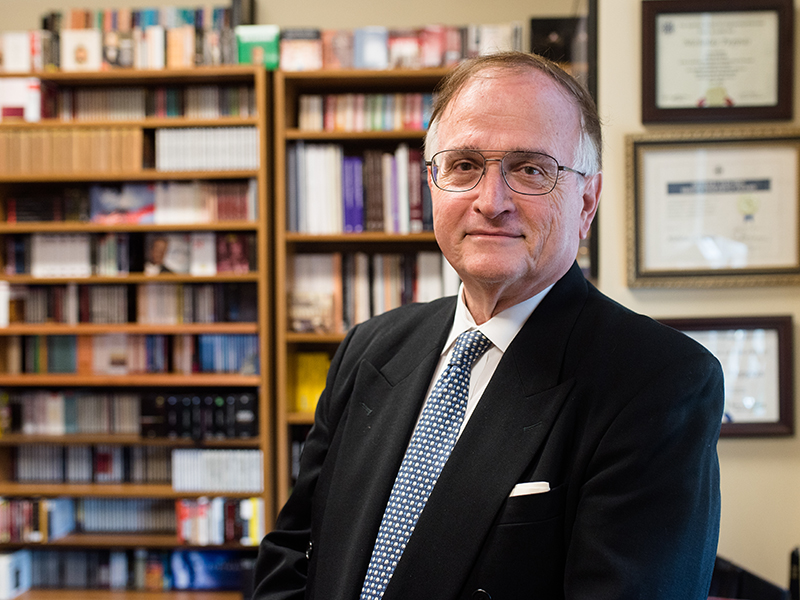This week, Nicholas Peppas — a professor in the Cockrell School of Engineering’s Department of Biomedical Engineering and McKetta Department of Chemical Engineering, as well as in UT’s Dell Medical School and College of Pharmacy — received the Adam Yarmolinsky Medal from the National Academy of Medicine (NAM), of which Peppas is a member.

Peppas, a pioneer in drug delivery who also serves as the director of the Institute for Biomaterials, Drug Delivery and Regenerative Medicine at UT, is the first engineer to receive this award, which is one of three prestigious medals that NAM awards to its members.
“We are extremely proud of Nicholas and the impact he has made in engineering, science and medicine throughout his career,” said Sharon L. Wood, dean of the Cockrell School of Engineering. “As the first-ever engineer to receive the esteemed Adam Yarmolinsky Medal, Nicholas shows us how cross-disciplinary approaches to scientific research can lead to extraordinary accomplishments and world-changing outcomes.”
The Adam Yarmolinksy Medal is awarded to a member from a discipline outside the health and medical sciences who has contributed to the mission of the NAM over a significant period of time.
“These distinguished members have shown extraordinary dedication to furthering science and improving the health of our nation,” said NAM President Victor J. Dzau. “The countless hours they have volunteered in various roles year after year have been crucial to helping the National Academy of Medicine address critical issues in health, medicine and related policy, and inspire collection action across sectors. We are delighted to honor them today.”
In its announcement of the medal recipients, NAM wrote of Peppas:
Peppas is a true pioneer in the development of principles in biomedical and chemical engineering that paved the way for groundbreaking scientific advances with broad-ranging applications, such as the delivery of insulin for diabetes treatment, calcitonin for osteoporosis and interferon alpha and beta for the treatment of cancer and multiple sclerosis, respectively.
The tremendous scope and lasting impact of Peppas’ contributions to the literature and to the fields of biomedical and chemical engineering are reflected in over 1,150 publications, which have collectively garnered more than 96,000 citations. His honors include election to several domestic and international societies and receipt of more than 150 awards.
Through his service on the NAM Membership Committee from 2013-2017 and the Subcommittee on International Members from 2015-2016, Peppas worked tirelessly to recruit and involve members from outside of health and medical sciences, such as chemical engineering and biophysics. He also served on various National Academies committees, such as the Committee on Key Challenge Areas for Convergence and Health, Panel on Benchmarking the Research Competitiveness of the U.S. in Chemical Engineering and the National Science Foundation Graduate Panel on Engineering.
In addition to his excellence in research, Peppas is an engaging and effective educator, having mentored more than 230 graduate students and visiting scientists. His unique ability to bring together researchers from disparate fields and his revolutionary research on biomedical and chemical engineering have had a tremendous and lasting impact on the NAM and the nation’s scientific progress.
